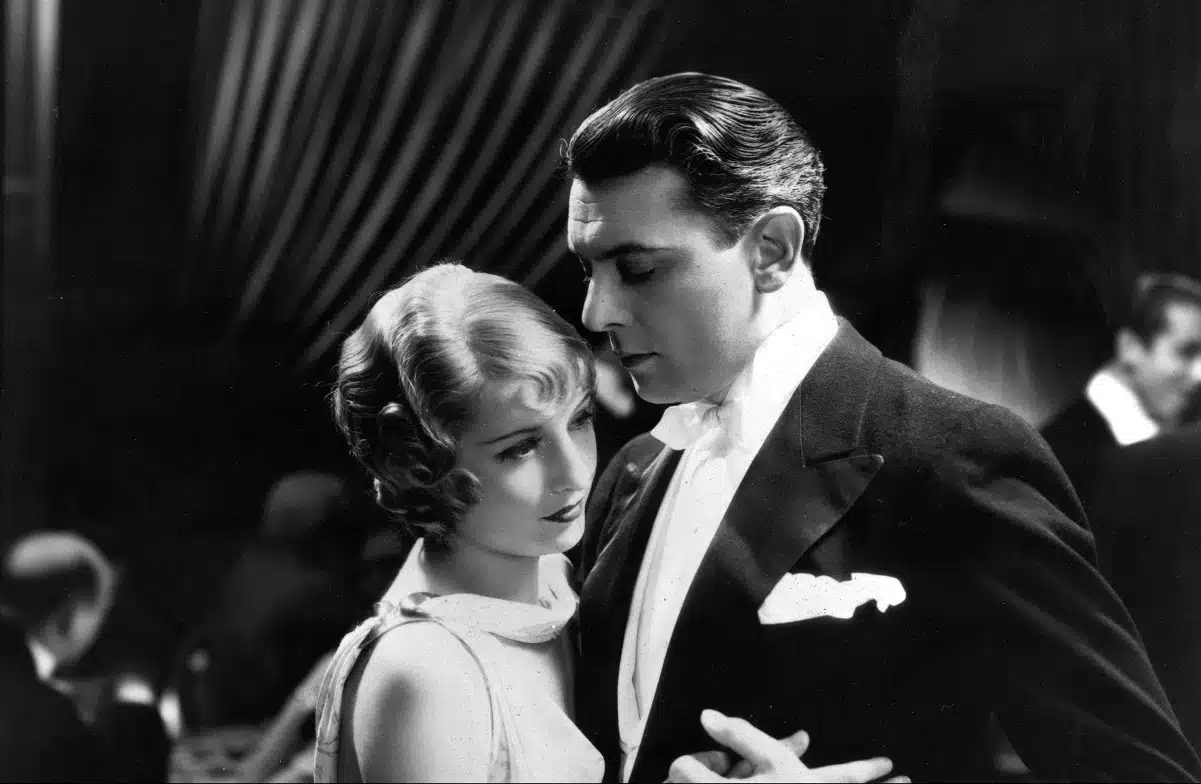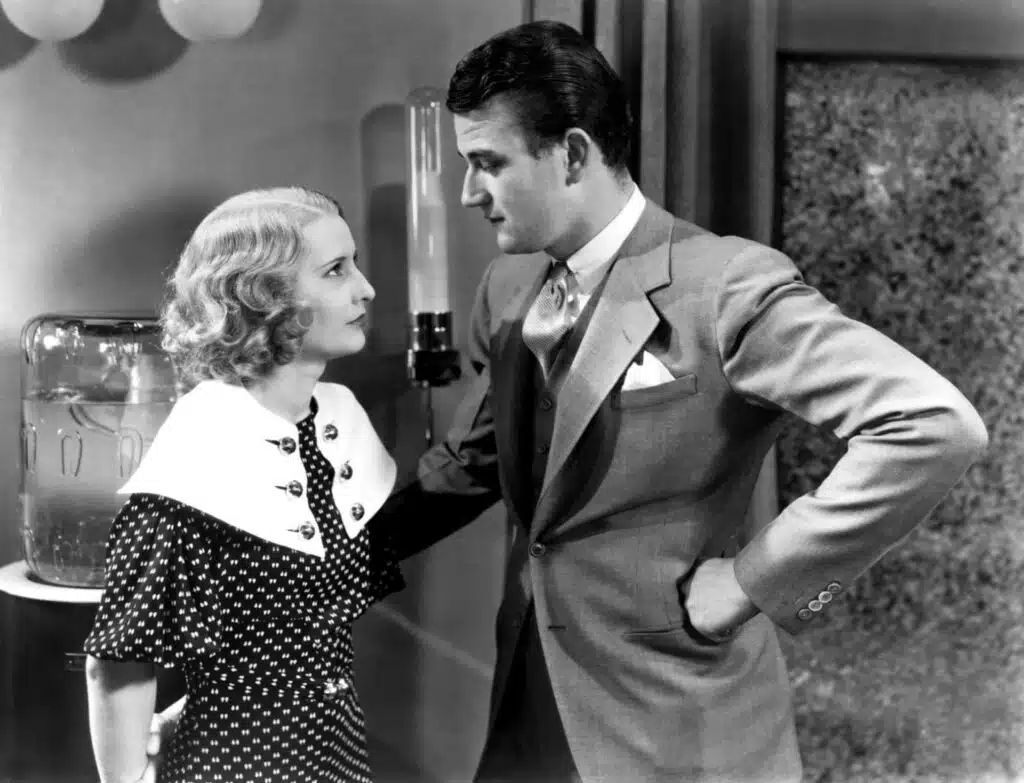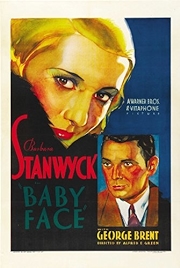A key “pre-Code” movie, Baby Face is one of a handful of 1930s movies said to have accelerated Hollywood’s movie studios into the era of self-censorship – the government was threatening to step in if they didn’t act.
It was a key movie for Barbara Stanwyck too, and helped her cement a reputation for playing tough, driven women. Here she’s a young unfortunate fighting her way up in the world by putting it about – that’s the sort of stuff the Code set out to stop – using and abusing men as she goes. Starting at the front door of a bank building in New York, she works her way literally and figuratively up it, beginning with the doorman and ending up with the bank’s owner.
But first some preamble explaining her behaviour. We first meet Lily working at her father’s bar, where she has to fight off both the drooling attention of lechers who drink there and attempts by her father to pimp her out. Here she is in an early speech to him: “Ever since I was 14 what’s it been? Nothing but men. Dirty rotten men.”
From here, after a conversation with a kindly cobbler (Alphonse Ethier) who encourages her to learn from Nietzsche and become her own superwoman – “Use men to get the things you want,” he urges. “You must be a master not a slave!” – she sets off to New York with her maid Chico (Theresa Harris) to begin her climb.
Lily is a victim, not an inherently bad woman, and the surprise of watching this reasonably notorious movie is how moral a tale it actually turns out to be. Lily may be a scarlet woman, to borrow a hard-working adjective from the time, but the men in this movie are no better. They’re dirty dogs, and in one way or another most of them pay for their dalliance with Lily.
Whatever it is Lily exudes that hypnotises all the men in this movie it does not come off the screen. Stanwyck plays Lily as forceful rather than seductive, a tough nut who’s both a grafter and a grifter. Surely these men, most of them married, aren’t smitten just because she’s an easy lay? It remains a mystery.
Made in 1933 just as the Code was coming into force, the film arrived on screens pre-censored. It was only in the 21st century that the original cut – four minutes longer at 75 minutes – was found. If you hear the name Nietzsche you’re watching it. If Lily, train-hopping her way to New York with Chico, seduces a railroad employee en route, you definitely are.
It was the references to sex that were cut out, though it’s all only suggested in the original, no more. Instead director Alfred E Green and his excellent technical team upgrade Stanwyck’s hair and wardrobe to indicate Lily’s wins in the war she’s waging – blonder hair, a permanent wave (quite the thing), designer clothes.
If it’s a war by the have-nots against the haves, it helps explain the relationship of Lily to Chico, a black woman regularly badly treated in this movie, but not by Lily. Chico is Lily’s confidante and as near to a friend of either sex that she has.
The men come and go, and there is murder and suicide before this gig is up, but Chico remains a lively and likeable presence, a comforting one for Lily and a humanising one for audiences (who are encouraged, despite it all, to think the best of this sexual adventurer).
Stories about smart, feisty women burning their way into the stratosphere by any means remain unusual even now, which makes this short and fast story of low cunning in high places of more than just historic interest. And talking of historic interest, yes that is a young, pre-fame John Wayne playing one of the men Lily climbs over on her way up the slippery pole.
Baby Face – Watch it/buy it at Amazon
I am an Amazon affiliate
© Steve Morrissey 2023


